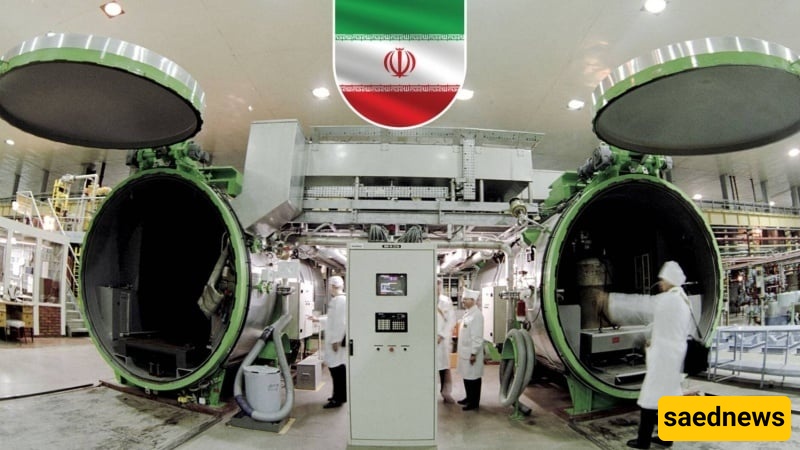SAEDNEWS: Hossein Alaei states that following the 12-day war, Iran has effectively ceased uranium enrichment, achieving zero enrichment, yet the United States continues to maintain pressure on Tehran.

Hossein Alaei spoke with Jamaran. According to Jamaran, the most important parts of the interview are as follows:
It appears that since Trump came to power, the United States was not seeking bilateral and constructive negotiations with Iran. Instead, Trump’s aim in correspondence and talks was for Iran to accept Trump’s views, which pleased Israel, and voluntarily dismantle its peaceful nuclear program under American inspection.
Israel was also looking for an opportunity to start a war with Iran. Unfortunately, Trump granted this authorization to the criminal Netanyahu, leading to a bloody 12-day war against Iran starting on June 13, during which nearly 1,100 Iranians were martyred and about 6,000 were injured.
Although Iran’s diplomatic apparatus made significant efforts and welcomed all forms of negotiation, it could not prevent the war or the continuation of sanctions, and the snapback process was initiated by European countries.
Therefore, although coordination between diplomacy and the field has existed over the past year, Iran’s foreign policy apparatus could not prevent the US and Israel’s decision to wage war on Iran.
If the most important role of any government is to prevent the imposition of war on the country, then the Ministry of Foreign Affairs has not been successful in this regard. Hence, aside from maintaining friendly relations with neighboring and regional countries, including Egypt, no major achievement can be observed in Iran’s foreign policy.
The Ministry of Foreign Affairs’ strategy during negotiations with the United States was not based on realities. It failed to correctly and timely read the US’s hand and Trump’s intentions in the negotiations.
From the beginning, the initiative in negotiations was in the hands of the United States, and Witkoff was negotiating to force Iran to accept zero enrichment, with no mention of lifting sanctions.
The US entered negotiations from a position of strength to exert pressure. Iran should have determined its negotiation strategy based on US strategy, its own strengths and weaknesses, and available resources, in order to avoid falling into the US negotiation trap.
The US negotiation strategy was “agreement or bombing.” Trump was not seeking a “win-win” process but aimed for a “win-lose” negotiation.
In any case, the US led negotiations to failure and, without setting a date for a sixth round of talks, allowed Israel to initiate war. Meanwhile, the Iranian foreign minister provided reports after each negotiation round indicating constructive talks for the Iranian people, creating the impression that negotiations were progressing toward a result, which later proved untrue.
The Iranian foreign minister also failed to correctly assess the imminent US plan for war via the Israeli army and could not timely convey its urgency to national officials. Consequently, no serious warning was provided to defense authorities to increase security measures for military commanders and nuclear scientists.
It seems that before the war, Iran could have taken a new initiative, for example by elevating the level of negotiations and proposing direct talks between the Iranian and US presidents to fully lift sanctions in exchange for suspending enrichment, thereby placing the US in a new situation.
Currently, Iran is not conducting enrichment, effectively achieving zero enrichment, but the US continues to maintain pressure.
After the war and at present, Iran is effectively conducting no enrichment, achieving practically zero enrichment. However, the United States continues to pressure Iran.
The European countries, in order to win the favor of the US president, are seriously pursuing the snapback issue and have prepared its groundwork. The three European countries regularly advise Iran to negotiate with the United States and reach an agreement.
Without explicitly stating it, they signal that Europe has no real role in Iran’s nuclear issue, and if Iran reaches an understanding with the United States, the snapback problem will be resolved, and Europe will end its measures against Iran. Therefore, it could be said that the diplomatic solution remains finding a way to compel the US to step back from its aggressive stance.
The Islamic Republic of Iran has always avoided war and welcomed negotiations with the enemy. Unfortunately, however, the United States has attacked Iran, leaving no diplomatic path other than accepting Trump’s demands. Currently, Trump continues to cast the shadow of war over Iran, and Israel, like a rabid dog, waits for Trump’s permission to continue the war against Iran.
The main duty of the Iranian government is to adopt measures preventing the United States and Israel from attacking Iran again. Iran must work to reduce its weaknesses revealed during the 12-day war, especially in intelligence agencies, and strengthen its strengths from that conflict.
In my view, Iran’s leadership and government can undertake a fundamental reassessment of domestic policy, treat Iran as belonging to all Iranians, and prioritize gaining public trust. The leadership should release all political prisoners, end house arrests, lift restrictions on cyberspace, and place economic development at the forefront of its agenda to enhance social cohesion and increase social capital.
Iran must always keep the door open for negotiation with the “Great Satan” and remove any pretext that the United States and Israel could use to attack Iran again, continuing the path of tension reduction.
The war by the United States and Israel against Iran has inflicted a significant blow to diplomacy and negotiations, confirmed Iran’s distrust of US behavior, and deepened the gap between the two countries.
In any case, Iran must endeavor to prevent the activation and implementation of the snapback mechanism and remove any pretext from the United States and Israel for starting another war. Israel’s constant desire has been to involve the United States with Iran, so that the US remains alongside it in weakening Iran and preventing the resolution of issues between the US and Iran.

